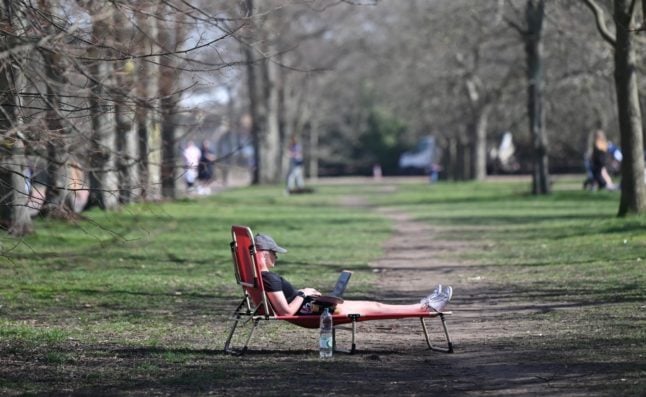In 2023 there is an additional requirement for anyone who owns a home in France – they must fill in a one-off Déclaration d’occupation, stating whether their property is their main residence or a second home.
The deadline for this to be completed is June 30th – although authorities have authorised a third extension so that anyone who completes it before August 10th will not face a fine.
The reason for this is changes to the tax system that are gradually phasing out taxe d’habitation for all but the highest earners – with the exception of second homes.
You can find a full explanation of how to file the declaration HERE.
This is separate to the annual income tax declaration that must be completed by everyone who lives in France – full details on that HERE.
Many of our readers have contacted us with questions about this new requirement, so we’ve answered some of the most frequently-asked here;
Do I still have to do this even though I don’t live in France?
A fairly sizeable number of people own property in France (usually holiday homes) but live elsewhere, such as the UK or the US. If you don’t live in France or have income in France you probably won’t have to do the annual income tax declaration, but the Déclaration d’occupation is different.
It concerns anyone who owns property in France, including second-home owners who live in another country.
Do I have to do this even though I pay all my taxes in another country?
If you own property in France you probably do, in fact, pay tax here – property taxes. Bills go out every autumn for the taxe foncière (the property owners’ tax) and taxe d’habitation (the householders tax) – and second-home owners would usually pay both. You may also receive a bill from your commune for waste-collection services, although the annual TV licence bill (which used to be sent out at the same time as the property tax bill) has been scrapped this year.
If you own property in France and have never paid property taxes, it might be worth a trip to the local tax office to check that you are registered correctly, as almost all property owners are liable for property taxes.
Do I have to do this every year now?
No, this is a one off. You complete the declaration this year (before June 30th) and then you don’t have to do it again until your situation changes – eg a second home becomes your main residence.
Why do we have to do this?
It’s because of changes to the tax rules. Taxe d’habitation – the occupier’s tax – used to be paid by virtually everyone, but is now gradually being phased out for all but high earners. The exception to this is second homes, so the tax office needs to know whether your property is used as your main residence or a second home so that they know whether to send you a bill in autumn.
Does this mean more taxes?
No, the declaration is purely for information – if your property is a second home you will continue to get your annual taxe d’habitation bill as normal, if it is a main residence you may receive no bill or a reduced bill, depending on your income.
What about commercial property?
If you own commercial property such as a workshop, bar or retail premises, then this does not affect you, the tax declaration is in relation to homes.
It’s all about clearing up the property status for taxe d’habitation, and you don’t pay this type of tax if it is a commercial premises.
What about gîtes, holiday homes or Airbnb properties?
It’s really all down to what you use the property for – if you run it entirely as a business it should be registered as a business.
If the property is your home and you occasionally rent it out on Airbnb (say, when you’re on holiday) then it still counts as a home and you will need to complete the déclaration d’occupation. Be aware that certain areas, including Paris, limit how many days per year you can rent out a property on Airbnb without registering it as a business.
Some people keep properties mostly for their own use as second homes but sometimes rent them out for extra money – be aware that if you do this, you may need to register as a business and declare any income received – full details here.
I don’t have a tax number/am not registered on the French tax site
If you don’t already have an online account on the French tax website impots.gouv.fr you will need to create one in order to complete the declaration – here’s how to do this.
I have my numéro fiscale, but when I try to register on the Impots site it tells me that my ID needs to be verified
Several readers have informed us that this happened, while others said that they managed to register with no problems.
There is a method of verifying ID online – details here – or you can visit your local tax office in person – details here.
If your numéro fiscale is not recognised, which happens in a minority of cases, you may need to either call or visit the tax office – full details here.
Do I have to do the declaration online?
The tax office says that this is an online-only procedure.
However, several readers who visited their local tax offices for help told us that tax office employees either helped them with the form or gave them a paper version.
Tax office employees are generally happy to help if you’re stuck with a process – although some offices in smaller towns do not deal with property tax queries. They will, however, be able to tell you which office will help you.
I own my property through an SCI, is there a different process?
Several property owners who bought through an SCI (a non-trading real estate company that functions in a similar way to a trust) have reported finding no property registered to them when they log on to their account on the tax website.
This is because an SCI is counted as a business, so the declaration must be done in the ‘professional’ section of the site – find full details on how to do this HERE.
My property is a second home, who do I list as ‘occupier’?
If the main use of your property is as a second home, then you are the owner-occupier – even if you’re not there full time.
Why is it asking me for dates of all our visits?
This is related to the question above – several readers told us that when filling in the form they were asked for beginning and end dates of each ‘occupation’. In most cases, it turned out that they had not listed themselves as the occupier.
The ‘occupation dates’ is aimed at people who rent out their properties on long-term rentals. It’s because traditionally taxe d’habitation is paid by the occupier of the property, rather than the owner, so the system is trying to find out who was the tenant – and therefore responsible for taxe d’habitation – at the relevant time.
Listing yourself as owner-occupier should do away with the need for filling out occupation dates.
What if my property details are wrong?
Once you have managed to create the online account, head to the Mes Bien Immobiliers tab at the top, and you should find a list of all properties registered in your name, with details including the size and type of the property.
If you find that these details are incorrect it won’t affect the declaration, you can still fill that in, but if the details are wildly different it would be a good idea to visit your local tax office and get them corrected so that everything is in order.
Why is my pool listed separately on the website?
It is normal that each building is listed separately – eg if your home has outbuildings – while swimming pools are also listed separately. You only need to complete one declaration if you only have one property.
What if I have only just bought the property?
French property taxes are based on who owned/occupied the property on January 1st of the tax year. If you bought your French property after January 1st this year, you will not need to complete the declaration this summer.
You will, however, have to do a declaration next summer, and you will receive your first set of property tax bills in autumn 2024.
If you sold your property after January 1st 2023, you remain liable for property taxes this year – unless you specifically mentioned this in the sale contract.
Can I just ignore it, or tell them my second home is a main residence?
Ignoring or lying to the tax office is generally quite a bad idea whatever country you’re in – they can get quite cross. Failure to complete the declaration in time, or giving false information on the declaration, will net you a €150 fine per property.
This sounds like a massive pain
Welcome to France – home of bureaucracy! Paperwork is a fact of life in France and that’s probably unlikely to change soon. If you’re already registered on the impots.gouv site then this is one of the more painless admin tasks – a couple of clicks, fill out the form and file it online and you’re done.
If you’re not registered on the site – here’s how to go about registering.
If you have questions on the property tax declaration, you can email us on [email protected] and we will do our best to answer them.
You can also call the tax hotline on 0 809 401 401, visit your local tax office (search Centre des finances publiques plus the name of your commune to find your local office) or select the ‘Contact et RDV’ section on the tax website.



 Please whitelist us to continue reading.
Please whitelist us to continue reading.
Filled in the form and it’s frankly pretty painless. What surprised me a bit was seeing that our swimming pool was somehow listed as a property against my name. No, I don’t live in that pool, Mr Taxman, though I know some fine frogs who would gladly do so if I didn’t fish them out all the time.
I own a ‘maison secondaire’ through an SCI, and had a ‘numero fiscale’ recorded on my Taxe Foncieres and Taxe d’Habitation. I followed The Local’s very helpful suggestions in attempting to get into the ‘Impots’ website, all of which failed, with the website ultimately instructing me that I needed to visit my local Tax Office to obtain ‘on-line’ permission.
We were at the house in February so I dropped into the local Tax Office, armed with my most recent Taxe Foncieres/d’Habitation documents. Without any wait, I was shown into the temporary cubicle housing the visiting Tax-man who simply took my ‘numero fiscale’ details, brought up my property records on his screen and marked each of the property elements ‘Secondaire’.
Job done ……… no physical ‘déclaration d’occupation’ ……….. and fingers firmly crossed for the foreseeable!!!
Excellent article. Thank you. Wish I had had this when tried to register yesterday. Anyway, much of the information can be accessed in English, my French is reasonable but this makes it easier. At the end I managed to find the application for a personal space which I filled in, it automatically turned it into an email. I added a copy of my passport and pressed send. Unbelievably, I received an answer today so now just to go on and complete the registration. Thanks again.